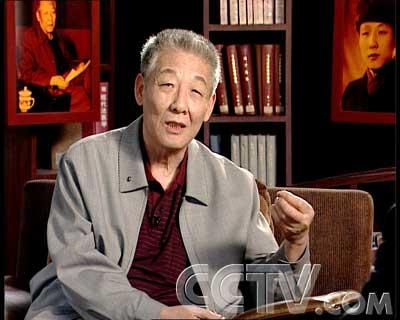 Sept. 8, 2025
Sept. 8, 2025
Weather
Sun Jiadong, Father of China's Satellite Technology
2010-01-15 16:38 BJT
Reporters learned from the China News that the 2009 National Science and Technology Award was revealed on the morning of January 11, and Sun Jiadong, a member of the China Academy of Science and one of the founding fathers of the "Two Bombs, One Satellite" and also a senior aerospace expert, received the award. As one of the three major experts involved with the Chinese Lunar Exploration Program, Sun Jiadong personally experienced, participated in, witnessed and directed the development of the Chinese aerospace program from the beginning until now. His legendary life is closely associated with many firsts in Chinese aerospace history.
 |
| Sun Jiadong, Father of China's Satellite Technology |
Born in 1929 in Fuxian, Liaoing Province, Sun Jiadong, who is a CPC member, is an expert in carrier rocket and satellite technology. He is also member of both the China Academy of Science and the International Academy of Astronautics. At the age of 18, he enrolled in the Harbin Institute of Technology to start preparatory courses in Russian, and later transferred to the automotive department. As the newly-established China began to set up an air force, Sun Jiadong, who was both of good character and strong academic performance, was chosen to join the army as a Russian translator, which the army was in dire need of at that time.
In 1951, Sun Jiadong, together with 29 other soldiers, was sent to study aircraft engines at Zhukovsky Air Force Academy. At the academy there was a tradition: the pictures of students who scored a 5 on all their examinations would be hanged on the gate of the school. If the student could maintain such excellence, the picture would be raised, and the higher you went, the fewer students there were and the larger the picture got. If a picture was still hanging there on graduation, then the student would be awarded a gold medal with a portrait of Stalin on it. In 1958, Sun Jiadong brought one of these precious gold medals to China.
In 1967, the central government decided to set up the China Academy of Space Technology, the president of which was Qian Xunsen. Sun Jiadong was appointed by Qian Xunsen to restructure the staff for satellite research, and Sun was already the vice director of the general satellite design department at the China Academy of Space Technology. Just like what he experienced 9 years previously when he returned to China, he gave up the more familiar field of guided missiles, where he had achieved much, and carried on the responsibility of satellite research. He was 37 years old at that time.
 Mail
Mail Share
Share Print
Print


 Video
Video









 2009 China Central Television. All Rights Reserved
2009 China Central Television. All Rights Reserved